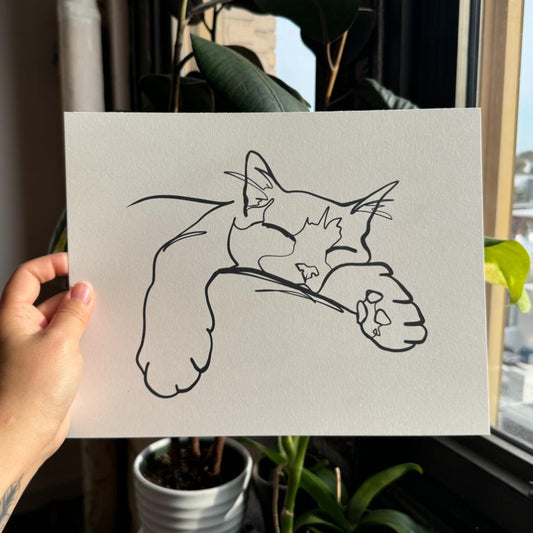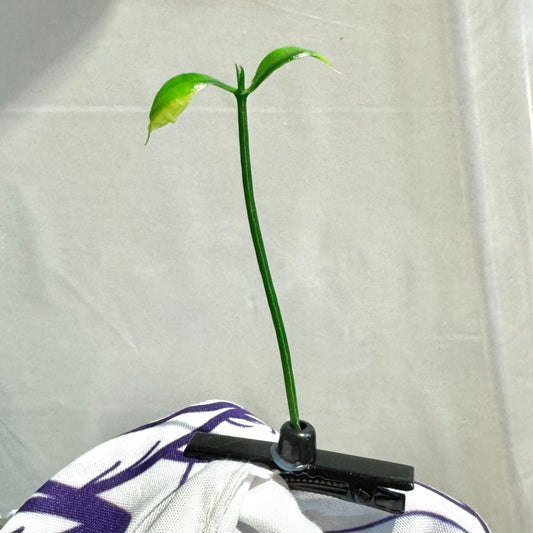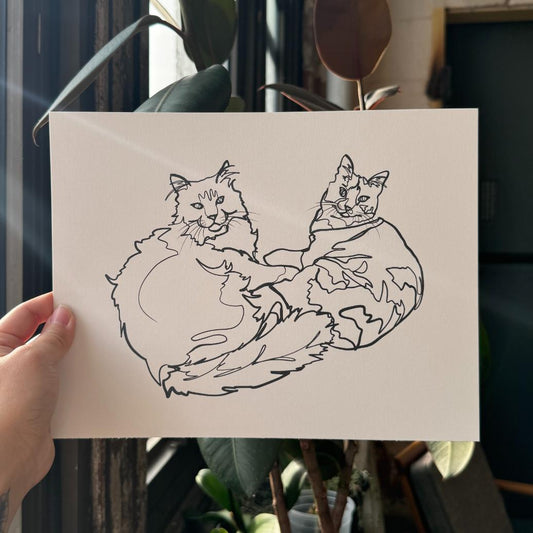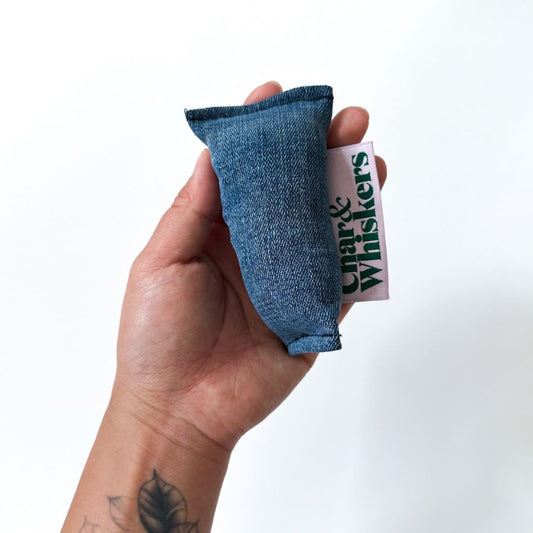
Hidden Dangers: Holiday Pet Safety Tips Every Hooman Must Know
Celeste ZosimoThe holiday season is the perfect time to be with friends, family, and, of course, our furbabies. It's a time for joy, celebration, and togetherness, but it can also pose hidden dangers for our beloved furry pals. As we decorate our homes and prepare festive food, it's also a must to know about holiday pet safety. Here is a guide to help you protect your pets during this merry time.
The Most Common Holiday Hazards for Pets

The following are the most common holiday hazards for your pets that you need to be aware of:
Decorations
Tinsels and ornaments are part and parcel of any holiday celebration, but sadly, they can be hazardous for our furry friends. The saying "curiosity killed the cat...and maybe the dog, too" may have something to do with this. Dogs and cats may find these items irresistible, and if ingested, they can cause severe intestinal blockages that require surgery.
Christmas lights and electrical cords can also be dangerous, especially when they chew on them. So, to keep the cheer and not the vet bills, ensure that these decorations are out of the reach of our cats, dogs, bunnies, and other pets.
Plants
Poinsettias, mistletoe, and holly are plants commonly associated with the holiday season. When ingested, they can irritate, cause stomach upset, and cause cardiovascular issues. Furthermore, pine tree pine needles can cause severe digestive problems if swallowed.
Food

Some holiday foods, especially chocolates, are toxic to dogs and cats, as well as fatty food and bones. These can cause pancreatitis or intestinal injuries. Also, it may seem unimaginable for our pets to get access to alcohol, but somehow, there are cases of pets getting seriously injured because of it. Keep these items and food out of your pets' reach to make the holidays merrier.
Anxiety and Stress Triggers

When the holiday season sets in, we often find ourselves changing our routine, which can be unsettling for our furbabies. It can be a change in their feeding schedule, different people coming in and out of our homes, or a simple furniture rearrangement. Overstimulation from guests and gatherings can also overwhelm our pets.
The constant flow of new scents, faces, and sounds can make them anxious. Most importantly, loud noises from fireworks, parties, and music are their greatest boon. To reduce your pets' anxiety and stress, provide them with a designated space they can retreat to. Make sure to keep it calm and peaceful. You can also use calming aids such as pheromone sprays and maintain their routine as much as possible.
Preventive Measures You Need to Know
Here is a list of crucial preventive measures for holiday pet safety you need to take note of:
Pet-Proofing Your Home:
Secure Your Decorations: While tinsel and other glittery ornaments look magnificent on your tree or home, it's better to consider your pets' safety first. Use shatterproof ornaments and avoid those with tiny parts that can get loose. Better still, keep them out of your pets' reach at all times. Additionally, keep the lights and electrical cords covered or out of reach.
Use Pet-Safe Plants: Choose pet-friendly plants, or if you really must, place toxic plants in areas your pets won't be able to access them. Pet-safe alternatives are Christmas cactus, bromeliads, orchids, all beautiful but safe for pets.
Food Safety: Store your holiday treats securely. Keep chocolates, fatty foods, and bones away from your pets. Consider preparing food for them specifically to ensure they don't have seasonings or spices that can be harmful to them. Also, avoid leaving food unattended.
Create a Safe Space for Your Pets:

Designated Quiet Area: Find a spot in your home to designate your pets' safe space. Make sure it is comfortable and equipped with your pets' favorite bed, toys, blankets, and pillows.
Calming Aids: Explore pheromone diffusers or calming sprays to help your pets with anxiety and stress during the holidays. Give them toys that will keep them occupied, like puzzle feeders or interactive toys.
Maintain Your Routine: Maintain their feeding times, walks, and play sessions to ensure consistency in their daily routine.
Emergency Preparedness

Holiday pet safety is also about preparing for any emergencies that can happen during this season. You need to recognize the signs of distress or poisoning that can significantly impact your pet's health and well-being. The following are symptoms to watch out for:
- Excessive drooling
- Diarrhea
- Vomiting
- Lethargy
- Difficulty breathing
- Seizures
- Tremors
- Any abnormal behavior
These signs can indicate a severe issue if your furbaby ingests something toxic, such as chocolate or a harmful plant. Observe any changes in their appetite, urination, or bowel movements. Knowing these symptoms will allow you to act quickly and seek veterinary help immediately.
In addition, have emergency numbers readily available. Make a list of your veterinarian's contact details and the numbers for your local 24-hour animal hospitals and place them in an accessible place. You can also get a basic first aid kit for common pet emergencies. You may also want to learn how to perform the Heimlich maneuver or check for blockages if your pet is choking.
In case of poisoning, you can induce vomiting only if recommended by your vet, using hydrogen peroxide. For minor cuts and wounds, you can apply pressure to stop the bleeding and use a clean bandage. Build your own pet first aid kit and include the following:
- Gauze pads and rolls for wrapping wounds or stopping bleeding
- Non-stick bandages to cover wounds without sticking to fur.
- Adhesive tape for securing bandages.
- Tweezers for removing splinters or ticks.
- Antiseptic wipes or solutions for cleaning wounds.
- Hydrogen peroxide to induce vomiting (only if instructed by your vet).
- Digital thermometer to check your pet's temperature.
- Disposable gloves for handling wounds or administering first aid.
Keep all these items in a sturdy, waterproof container. Check it regularly to see if it needs replenishing.
Additional Resources
To further improve your knowledge of holiday pet safety and emergency preparedness, below are a few resources:
ASPCA (American Society for the Prevention of Cruelty to Animals): An organization dedicated to preventing animal cruelty and promoting their welfare. They have a wealth of resources on pet care and safety.
Center for Pet Safety: A non-profit organization focusing on pet and consumer safety.



